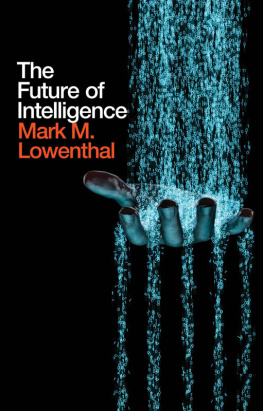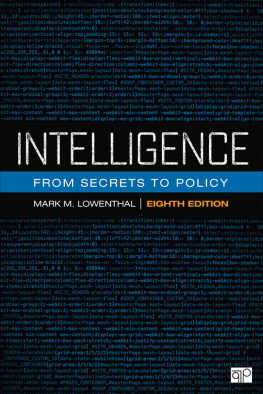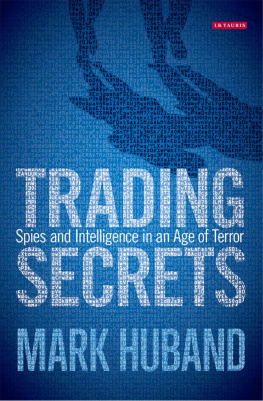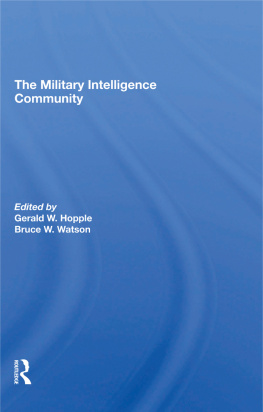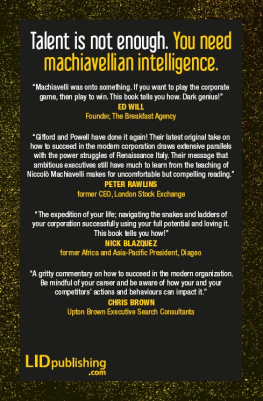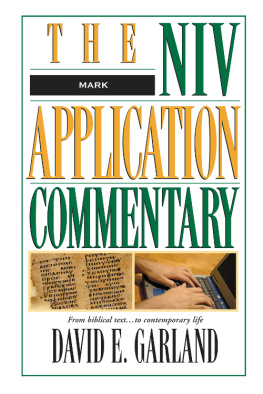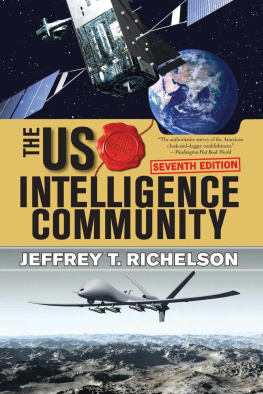Mark M. Lowenthal - The U.S. Intelligence Community
Here you can read online Mark M. Lowenthal - The U.S. Intelligence Community full text of the book (entire story) in english for free. Download pdf and epub, get meaning, cover and reviews about this ebook. year: 2015, publisher: Taylor & Francis, genre: Politics. Description of the work, (preface) as well as reviews are available. Best literature library LitArk.com created for fans of good reading and offers a wide selection of genres:
Romance novel
Science fiction
Adventure
Detective
Science
History
Home and family
Prose
Art
Politics
Computer
Non-fiction
Religion
Business
Children
Humor
Choose a favorite category and find really read worthwhile books. Enjoy immersion in the world of imagination, feel the emotions of the characters or learn something new for yourself, make an fascinating discovery.

- Book:The U.S. Intelligence Community
- Author:
- Publisher:Taylor & Francis
- Genre:
- Year:2015
- Rating:5 / 5
- Favourites:Add to favourites
- Your mark:
- 100
- 1
- 2
- 3
- 4
- 5
The U.S. Intelligence Community: summary, description and annotation
We offer to read an annotation, description, summary or preface (depends on what the author of the book "The U.S. Intelligence Community" wrote himself). If you haven't found the necessary information about the book — write in the comments, we will try to find it.
The U.S. Intelligence Community — read online for free the complete book (whole text) full work
Below is the text of the book, divided by pages. System saving the place of the last page read, allows you to conveniently read the book "The U.S. Intelligence Community" online for free, without having to search again every time where you left off. Put a bookmark, and you can go to the page where you finished reading at any time.
Font size:
Interval:
Bookmark:

VOL. 11
VOL. 1765
Series Editor
An Annotated Bibliography
by Robert L. Hollings
An Annotated Bibliography
by Samuel Walker
An Annotated Bibliography and Research Guide
by Lee Epstein, Tracey E. George, and Joseph F. Kobylka
An Annotated Bibliography
by Allan J. Ciger, Raymond Birt, and Anthony J. Nownes
A Sourcebook on Think Tanks in Government
by Robert L. Hollings
A Commentary and Annotated Bibliography
by James A. Johnson and Walter J. Jones
A Selective Bibliography
by Rosalind G. Bauchan
An Annotated Bibliography and Research Guide
by Athan Theoharis
An Annotated Bibliography
by Mark M. Lowenthal

Taylor & Francis Group
711 Third Avenue
New York, NY 10017
Taylor & Francis Group
2 Park Square, Milton Park
Abingdon, Oxon OX14 4RN
Lowenthal, Mark M.
The U.S. intelligence community: an annotated
bibliography / Mark M. Lowenthal.
p. cm. (Garland reference library of the
humanities; vol. 1765. Organizations and interest
groups; vol. 11)
Includes index.
ISBN 0-8153-1423-X (alk. paper)
1. Intelligence serviceUnited StatesBibliog
raphy. I. Title. II. Title: US intelligence community.
III. Series: Garland reference library of the humanities
; vol. 1765. IV. Series: Garland refernce
library of the humanities. Organizations and interest
groups; vol. 11.
Z6724.I7L69 1994
[JK468.I6]
016.3271'273dc20 94-10298
CIP
For Sarah and Adam
- CIA Central Intelligence Agency
- CIG Central Intelligence Group (CIA predecessor)
- CMS Community Management Staff
- DCI Director of Central Intelligence
- DDI Deputy Director for Intelligence (or) Directorate for Intelligence, both CIA
- DIA Defense Intelligence Agency
- FBI Federal Bureau of Investigation
- HPSCI House Permanent Select Committee on Intelligence
- INR Bureau of Intelligence and Research (State Department)
- IOB Intelligence Oversight Board
- KGB Soviet Union's Committee for State Security
- NFIB National Foreign Intelligence Board
- NFIC National Foreign Intelligence Committee
- NFIP National Foreign Intelligence Program (the Intelligence Community budget)
- NIE National Intelligence Estimate
- NIO National Intelligence Officer
- NPIC National Photographic Interpretation Center
- NRO National Reconnaissance Office
- NSA National Security Agency
- NSC National Security Council
- OSS Office of Strategic Services
- PFIAB President's Foreign Intelligence Advisory Board
- SSCI Senate Select Committee on Intelligence
- SSU Strategic Service Unit (OSS remnant, later folded into CIA)
- ULTRA Allied code breaking in World War II
School of Public Administration and Policy
Florida State University
Font size:
Interval:
Bookmark:
Similar books «The U.S. Intelligence Community»
Look at similar books to The U.S. Intelligence Community. We have selected literature similar in name and meaning in the hope of providing readers with more options to find new, interesting, not yet read works.
Discussion, reviews of the book The U.S. Intelligence Community and just readers' own opinions. Leave your comments, write what you think about the work, its meaning or the main characters. Specify what exactly you liked and what you didn't like, and why you think so.

